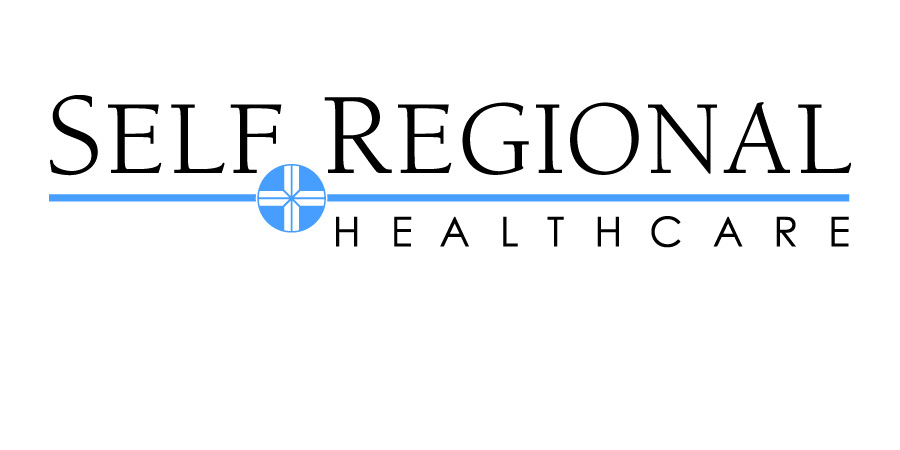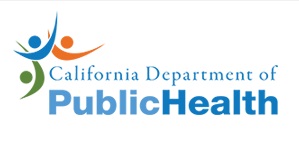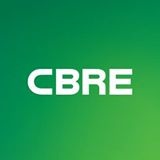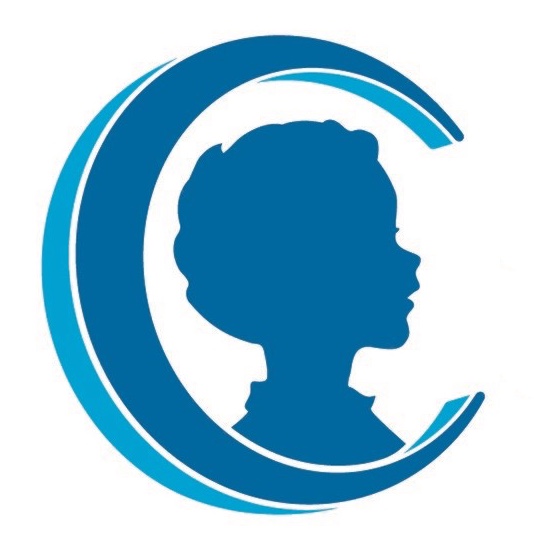Information
-
Audit Title
-
Conducted on
-
Prepared by
Community Information
Community Information
-
Community
-
Address
-
Phone #
-
Website
Occupancy
-
Capacity (Total Units)
-
Today's Census
Leadership Team
-
Administrator
-
Hire/Promotion Date
-
Email
-
Mobile Phone
Key Staff
-
Name
-
Title
-
Hire/Promotion Date
-
Email
Critical Factors/Compliance
Critical Factors/Compliance
-
Incident Reports: Incident Report procedure is being followed consistently per RMC policy. <br>(Review Incident Reports and cross reference to Alert Charting, Progress Notices, Service Plan and MAR.)
Incident Report Review
-
Resident Identifier
-
Incident Report Date
-
Incident Report Complete and proper notification made?
-
Added to Alert Charting Log?
-
Progress Notes Sufficient?
-
Service Plan updated?
-
MAR Update
-
Workers Comp/OSHA/Safety: Workers Compensation claims reported to appropriate parties, OSHA logs are current, RMC Safety Training topics taught as scheduled, zero injuries this quarter.<br>(Review open Worker's Compensation claims. Review OSHA logs. Review documentation of Safety Training and cross reference agains Safety Calendar.)
Worker's Comp Claim
-
Employee Name
-
Date of Incident
-
Cause of Incident
-
Type of Injury
-
Modified Duty?
-
Comments
-
Administrator Accountability: Submits reports on time (Monday census and roster, monthly management reports, Rockstar nomination), attends monthly Administrator and Marketing call, and responds to deadlines and requests in a timely manor.<br>(Administrator is expected to be very familiar with state rules and regulations. Administrator will ensure that all RMC policy and procedure binders are accessible and contain the most current forms and policies and procedures.)
-
RMC QA Program: Program/committee fully implemented. <br>(Review data to verify community has a QA committee, and documentation and audits are completed with follow up each month.)
-
Resident Charts: Follow state and regulatory guidelines for completion. <br>(Cross-reference to state regulations i.e. Face Sheets match state requirements, advance directives match resident wishes, and charts are organized, purged, and stored as needed.)
-
Safety Committee: Safety Binder should be organized with tabs for each month available for review by OSHA. Safety meeting minutes reflect continuous quality improvement and regularly scheduled audits and meetings <br>(Review Safety Committee Binder for meeting agendas/minutes, self-audits and inspections, and evidence of QA improvements.)
-
Life Safety: Life safety programs and fire drills are documented per state guidelines. <br>(Review fire drill and inservice records. Cross reference with state regulations.)
-
Community Vehicle Drivers: List of all approved drivers for community vehicles is maintained, and proper documentation present (current driver license, annual MVR, annual Driver Safety training reviews).<br>(Review file of each approved driver.)<br>
-
Criminal Record Clearance: Current, clean criminal background results for all employees. <br>(Review 5 employee files. Cross reference to state regulations for frequency of recheck for criminal record.)
-
TB & Hep B: Current TB tests and HEP-B acceptance/declination forms on file or all employees. <br>(Review 5 employee files. Cross reference to state regulations for frequency of screening/testing.)
-
Performance Appraisals: Performance appraisals are completed within required time frames.<br>(Utilizing employee data in SwipeClock, review 5 employee files 90-365 days from hire, and 3 employee files employed over a year to assure performance appraisals are being done timely. Content should be of good quality and reflect the supervisors desire to see personal and performance growth in the employee.)
-
Training & In-Services: "Welcome Home"/New-hire orientation, RA training, MA training, and other training is conducted and documented per state mandated time-lines. <br>(Review 5 employee files. Cross reference to state regulations for initial and on-going training/in-services.)
-
Staff Meetings: Employee staff meetings are held twice monthly with documented agenda/minutes. <br>(Review meeting agendas/minutes and staff sign-in sheets.)
Employee File Review
-
Employee Identifier
-
Hire/Promotion Date
-
Date of last performance appraisal.
-
Title/Position
-
Criminal Record Clearance Current?
-
TB Test Current?
-
Hep B Acceptance/Declination on File?<br>If Accepted, documentation Employee has been sent for vaccination.
-
First Aid current?
-
CPR current?
-
Food Handlers/Serve Safe current?
-
Documentation of Training current and meets RMC & State regulations?
Marketing
Marketing
-
YGL Utilization: YGL is up-to-date and evidence of meaningful relationships being built. <br>(Review number of hot, warm and cold leads. Review number of deposits & scheduled move-ins. Review number of referral sources.)<br>
-
YGL Marketing Calendar: Is complete and updated on-going.<br>(Review marketing calendar for community visits, phone calls, monthly events, and general contact with lead sources.)
-
Model room and/or rent ready apartments.<br>(Inspect all vacant apartments to determine rent readiness.)
-
Newsletter: Newsletter is of good quality/content and sent to all leads, lead sources, residents, family members and RMC communities monthly.<br>(Review past newsletters for quality & content. Review YGL to ensure documentation reflects Newsletter being send to all Leads/Lead Sources.)
-
Marketing Collateral: Marketing collateral is professional and meet the standards as outlined by the RMC marketing director; several tour packets are prepared and presentable.
-
Welcome Committee in place.<br>(Review welcoming protocol, including gift, persons on committee, their roles.)
-
Customer Service Training: Staff are trained in customer service, answering inquiry calls, and touring prospects. <br>(Interview staff regarding their skills and training - review training materials.)
-
Census average last 3 months.
Life Enrichment/Activities
Life Enrichment/Activities
-
Personal Interest Interviews: Completed within 30 days of move-in. Original kept in Life Enrichment Binder with a copy on bright colored paper placed behind Service Plan.
-
Activity Calendar: Includes all elements of the RMC LIfe Enrichment programming weekly.<br>1. Creative Arts/Spiritual Enrichment: Arts & crafts, cooking & baking, music, spiritual/religious services, art classes.<br>2. Social/Activities of Daily Living Skills: Collectors clubs, Elder Stories, holiday celebrations and decorating, heroes and heroines, reminiscence group, children or youth groups.<br>3. Sensory Enrichment: Movie club, Wii, music, pet visits, massage or aroma therapy. <br>4. Physical/Mental/Cognitive: Book clubs, audio books, events of the day, garden club, educational seminars, support groups, wellness program. <br>Activity calendar should also include intergenerational programming and resident volunteer opportunities. <br>
-
RMC Programs implemented: Balance Fitness Program, Saving Libraries etc.
-
Life Enrichment Coordinator: Received orientation to RMC Life Enrichment Policies and Procedures and has completed skills checklist. Spend-down sheets are used effectively to track/monitor purchases and expenses and are reviewed by Administrator monthly.
-
Resident Council: Resident Council is active and meets at least monthly. Minutes are posted, Administrator provides written response regarding concerns/complaints to residents and family members. <br>(Review Resident Council Minutes and Administrator response/follow-up since last review.)
-
Volunteer Program: Successful program in place. Compliant with RMC policies regarding volunteer recruitment and recognition. <br>(Review activity calendar, volunteer files/applications, sign-in sheets and recognition programs/events. Interview volunteers.)
-
Resident Lead Activities: Resident involvement and self-directed activity is present as evident in resident committees and resident lead activities. <br>(Interview residents and review activity calendar.)
-
Elder-Directed Programming: Life Enrichment Program is designed and scheduled with careful consideration of Personal Interest Inventories and through ongoing interviewing/surveying of residents.<br>
Staffing
Staffing
-
Staffing Plan. Current staffing plan being followed. <br>(Review staffing plan and compare with schedule and hours recorded on www.swipeclock.com.)
-
All RMC employee retention programs implemented and utilized consistently. Employee retention levels demonstrate evidence of success with the programming. (J.I.W. Team, Safety Bonus, Koepp, Rockstar, Shifthound)
-
Overtime is not exceed 3% = 30 points<br>Overtime 3.01 - 5:5 = 15 points<br>5.01 = 0 points
-
Home Office staff report that payroll is done timely, correctly and consistently.
Memory Care
Memory Care
-
Service Plans indicate interventions (using validation techniques) are adequately addressed, PRN medication indications are documented, and include monitoring of weight and nutrition. <br>(Review MAR for PRN medications, and assure PRN parameters are indicated on service plan and MAR. Additionally, review service plans for evidence of documentation of validation attitudes and methods. Staff should be reading and updating daily. Check for fall interventions, presence of medications signs and symptoms, resident's social history info is present, cognitive interventions are listed if necessary, and behavioral interventions are listed to support resident during challenging times.)
-
Environment. Courtyard/outdoor areas are accessible and free from hazards. Community is clean and odor free. No internal hazards present. <br>(Inspect to ensure that no chemicals are accessible to residents, storage areas are locked, food in refrigerator is covered, labeled, dated and is not kept for more than three days.)
-
Caregivers engaged with Elders, using Elder-directed strategies and validating attitudes. <br>(Observe caregivers with residents. Caregivers should be interacting, guiding, and supporting the residents through their ADL's, mealtimes, and engaging in conversation with them using person-directed techniques and speaking with residents with validating attitudes as indicated in training.)
-
Life Story Books and Social Histories: Completed for each Elder within 30 days of move-in and are utilized as part of the programming.
-
Activity Calendar: Posted and mailed to family members monthly. Meets expectations for group and individual enrichment. <br>(Observe activities - are activities done as scheduled? Is the Life Enrichment Program person-centered?)
-
Residents: Residents are clean, well groomed, and happy. The environment reflects a spirit of joy, independence, and wellness.
-
Dementia training. Initial and ongoing training and in-services conducted and documented in accordance with RMC and state regulations. Training includes support for employees to prevent burn-out. <br>(Review documentation and cross-reference to state regulations.)
-
Support Group offered consistently and meets the needs of the community's residents and family members. <br>(Review support group process. If an internal support group exists, review calendar and attendees. If outside support group attended, review participation.)
Service Plans
Service Plans
-
Current Assessment/Service Plans: All residents have current Service Plans.<br>(Review 5 residents Assessment/Service Plans for timeliness, quarterly signatures of family members and other key staff. <br>Service Level Summary Sheets kept in a binder, separate from Service Plans.)
-
Care provided matches Service Plan. Evidence of staff documentation in the Service Plan to assure change of condition is noted. <br>(Review 5 Service Plans with care staff and/or resident or family member and interview to determined whether services documented on service plan are actual services provided.)
-
Self-Medicating Residents: Have completed quarterly self-administration interview to assure cognitive function to self-medicate. <br>(Review charts of all self-medicating residents.)
-
Service Plan Calendar: Is utilized and Service Plans are scheduled at least quarterly.<br>(Review past a future calendars, and spot check scheduled and completed service plans with actual service plans.)
-
Resident Roster: Service Level Summary Sheets match Resident Roster, Input Sheets and Invoices.
Service Plan Review
-
Resident Identifier
-
Service Plan Date
-
Current?
-
Summary signed by Resident/Family Member, Health Service Coordinator and Administrator?
-
Evidence of staff documenting in/updated Service Plans?
-
Behavioral Interventions adequately addressed?
-
Fall interventions adequately addressed?
-
PRN Medication Indicators present?
-
Care & services provided match Service Plan?
Medication QA
Medication QA
-
Medication Assistance Protocol: Is being followed per RMC Health Services Manual and state regulation. <br>(Review systems to include health services review audit including MAR and Documentation audits are completed monthly, review of med card for cleanliness and organization, regular audits of the system are in a binder for review. Review MAR, progress notes, 24-hour book, alert charting, and Physician orders.)
-
Medication Assistant Training: MAs have taken the state mandated training, if required and have also completed RMC Medication Assistant Training and skills checklist. <br>(Review staff files documentation of training, including skills checklist and certifications. Records should indicate completion of MA skills checklist upon hire and monthly med pass observations.)
Dining Services
Dining Services
-
HACCP program and audit tools are bing used per RMC guidelines.<br>(Review audit documentation and protocols. Documentation of temp logs, weekly and monthly audits should be evident and organized in binders. Kitchen should be clean, all food/beverages in walk-in should be covered, labeled, and dated.)
-
Food costs, when averaged over last 6 months are within budget. Spend-down sheets are used effectively. <br>$4.85 or less = 20 points<br>$4.85 - $5.00 = 10 points<br>$5.01+ = 0 points
-
Resident Food Council meets monthly and actively participates in expressing food/menu preferences. <br>If Dietician consultation is required by state, review documentation/recommendations. <br>(Review Food Council minutes and action items).
-
Employee and guest meals are documented and emailed to RMC by the 5th of each month. <br>(Ask Home Office staff is reports are received timely each month. Review process for collecting money for guest meals and depositing daily).
Accounting
Accounts Payable
-
Vendor files organized alphabetically per RMC regulations. Invoices are copied and filed after sending original to Home Office. <br>(Review vendor files.)
-
Home Office staff indicate that the proper AP process is used consistently and correctly. Petty Cash and RFMS funds are balanced weekly. <br>(Interview Home Office staff for feedback, reconcile petty cash and RFMS funds while on site.)
-
Expenses/Repairs exceeding $500 are approved ahead of time. Authorization is attached to invoice prior to being received by Home Office.
Accounts Receivable
-
Rents are collected consistently by the 5th of the month (excluding Medicaid). <br>(Review Open Invoice Report)
-
Collection process occurs timely and consistently for uncollected AR.<br>(Review any late accounts for collection letter process, documented record of follow up and collection calls.
-
Home Office staff indicate that the proper AR process is used consistently and correctly. <br>(Interview HOme Office staff for feedback)
Physical Plant/Maintenance
Physical Plant/Maintenance
-
Community is clean and odor free.<br>(Front entry way and front desk workspace should be presentable and free of clutter. Observe carpets, walls, doorways, walk-around community inside and outside.)
-
Fire Extinguishers inspected monthly and documented on tag. <br>Fire inspections, elevator inspections, grease trap inspections, smoke alarm inspections, pest control inspections and other inspections required by an outside vendor per state regulation and current and community as corrected any deficiencies noted during inspections.
-
Landscaping: Evidence that attention is paid to landscaping around the community.<br>(Lawns are mowed, weeds are pulled, flowerbeds are cared for, cigarette butts are properly discarded, etc.)
-
Bus/Van on preventive maintenance program.<br>(Review preventive maintenance records.)
-
Preventive Maintenance Program in place and documented per RMC regulation. <br>(Review preventive maintenance calendar and records. Audits should be organized in a binder.)
Financial Performance
Financial Performance
-
NOI average over previous 3 months<br>NOI at or above budget = 60 points<br>NOI within 3% of budget = 30 points
-
Expenses averaged over past 3 months<br>Expenses at or below budget = 60 points<br>Expenses within 3% of budget = 30 points
-
Revenue averaged of previous 3 months<br>Revenue at or above budget = 60 points<br>Revenue within 3% of budget - 30 points
-
Discussion and Financial Plan
Regulatory
State Licensing
-
Date of last State Survey
-
Was a Plan of Correction Required?
-
Was the Plan of Correction submitted for review by the Regional Director?
Medicaid
-
Date of last Medicaid Survey
-
Was a Plan or Correction Required
-
Was the Plan of Correction submitted for review by the Regional Director?
Ombudsman/Elder Protective Services
-
Are there any current abuse allegations or protective service investigations?
Other Regulatory Issues
-
Resident Call System - Review staff response times.
Summary & Goals
Property Review Summary
-
Total Score
-
Summary
Goals & Corrective Action Plans
-
Goals
-
Goal/Corrective Action Plan
-
Responsibility of
-
Timeframe for completion
Regional Director Review
-
Goal Completed
-
Administrator
-
Regional Director










